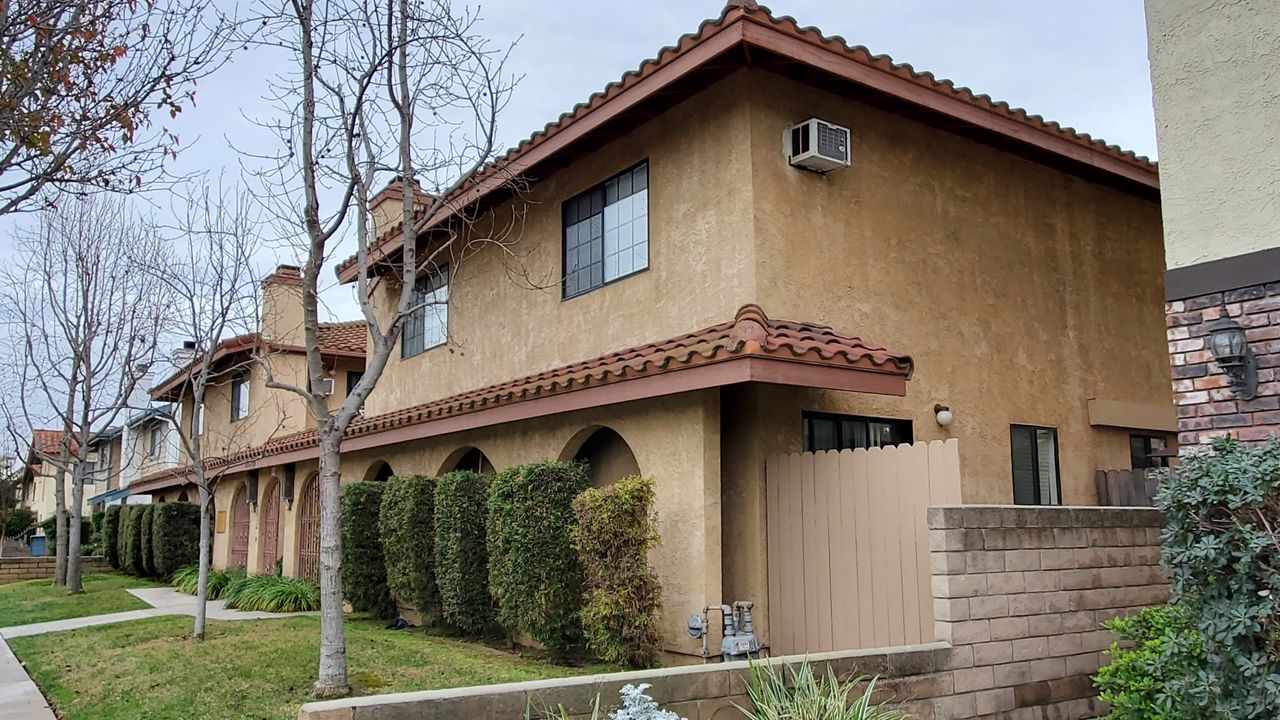ANAHEIM, Calif. — Apartment rents in some of the major core cities across Southern California fell in December by as much as 15%, according to one report, a sign that the coronavirus pandemic had people leaving the big city for greener affordable pastures.
According to listing service Apartment Guide, the year-over-year median monthly rental price for a one-bedroom unit in Los Angeles fell by 15.5% to $2,683; Anaheim is down 12.5% to $2,040, and Irvine dropped 9% to $2,492. Meanwhile, the cost of an apartment rental in Riverside jumped 8.7% from the previous year to $1,930.
"There has been a trend over the past year where notoriously expensive cities — NYC, San Francisco, L.A. to name a few — have seen a big decrease in rent prices," said Brian Carberry, senior managing editor at Apartment Guide, to Spectrum News. "It's a combination of people looking to move out of urban areas into the suburbs because in many cases this means more space or a larger unit at a cheaper price, and less demand to live in certain areas because we can work from home basically anywhere."
Apartment Guide analyzes data from its advertisers that list their apartment prices on the site.
The latest report highlights the impact and migration patterns of renters due to the coronavirus pandemic. It also mirrors that of other data companies that track apartment rents nationwide.
According to Yardi Matrix, rent in Los Angeles at the end of January saw a year-over-year decline of 3%. Orange County rent saw a 0.2% dip. On the other hand, the Inland Empire's rent went up by 7.4% from the previous year, Yardi Matrix reported.
With many employers, especially those located in downtown business commercial districts, requiring employees to work from home, many tenants left their usually smaller apartments in the city. They opted to live in a more affordable place.
Carberry said it's part of a more significant trend from tenants nationwide. They want larger space at an affordable price. According to the report, big cities across the nation from San Francisco, Boston, Washington, D.C., to Tampa, Florida all faced downward pressure on rent prices. Meanwhile, smaller cities with a population of 500,000 or less saw rent increases. Sacramento, Charlotte, N.C., and Las Vegas, Nev. saw their rent prices jump.
"The main takeaway nationally is a move towards larger units," Carberry said. "Two and three-bedroom apartments are in high demand right now as people look to move in with families or roommates to try to cut costs."
Whether this trend continues or not, we'll see, Carberry added.
"When leases begin expiring at the end of 2021, we may see a shift back towards smaller units as people look to get back out on their own or return to urban centers," he said.
He doesn't see people staying away from the big city permanently.
"There will always be some sort of demand to live in downtown neighborhoods, especially once businesses begin to open at full capacity and events like concerts, festivals, sports, etc., return," he said. "How quickly that happens might also determine how quickly prices rebound. If someone is thinking about living in a popular neighborhood, now is the time to get in before prices do start rebounding."
Zion Perets, the chief financial officer and managing partner at CGI, did not say whether his company, which owns and operates 25 apartments totaling 2,000 units across four states, increased or lowered rent during the pandemic.
"It's hard to give a definitive answer," Perets said. "Every project and every market is different. Every market has its challenges."
Perets did say that it is more challenging to lease to a new tenant when a newer apartment enters the market. Koreatown, for example, is experiencing a flood of new apartments in the area. CGI owns three apartment buildings in that area.
"Many times those new buildings are providing more concessions, and so a tenant approaching the end of their lease has two options: either renew the lease or move to a brand new building and enjoy those concessions," Perets said. "Again, the difficulty is not only in those new buildings but also the old buildings that find themselves competing with the new product."
Perets said his property in Santa Clarita, a suburb of Los Angeles, which is more than 30 miles away from Downtown L.A., experienced a lot of demand.
"The price is more affordable. It's a nice two-story garden-style apartment," he said. "What I can say is the COVID-effect drives and attracts more new tenants in those markets, and those markets are experiencing better times than pre-COVID."



